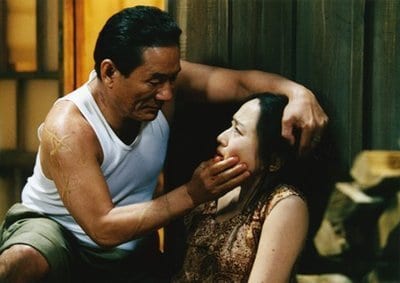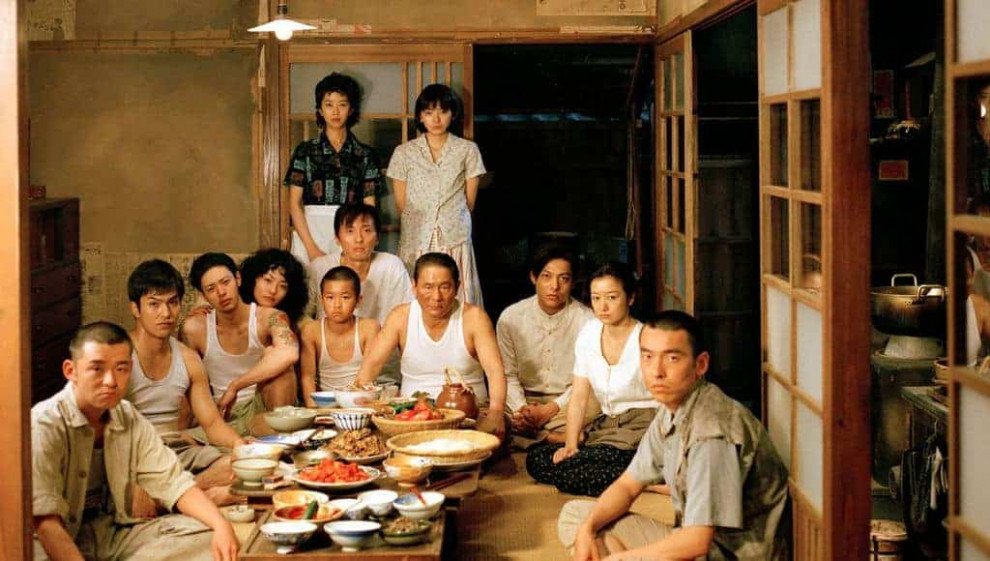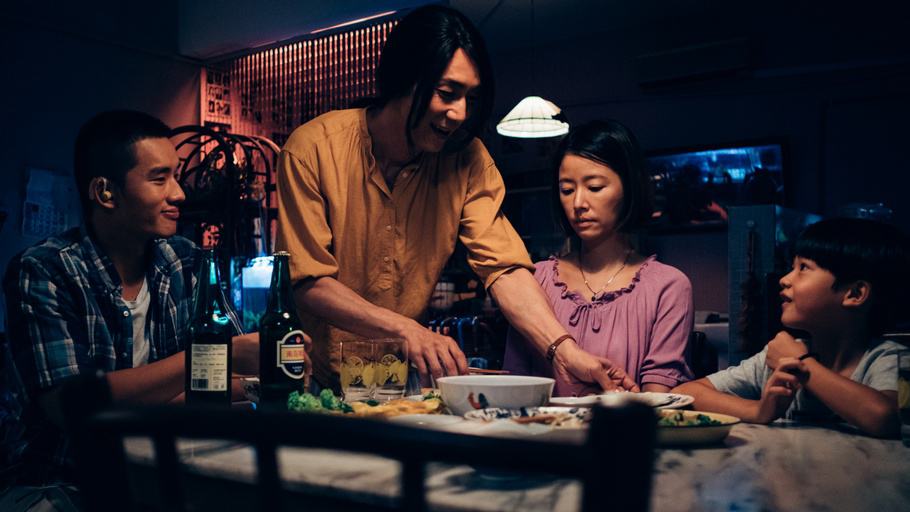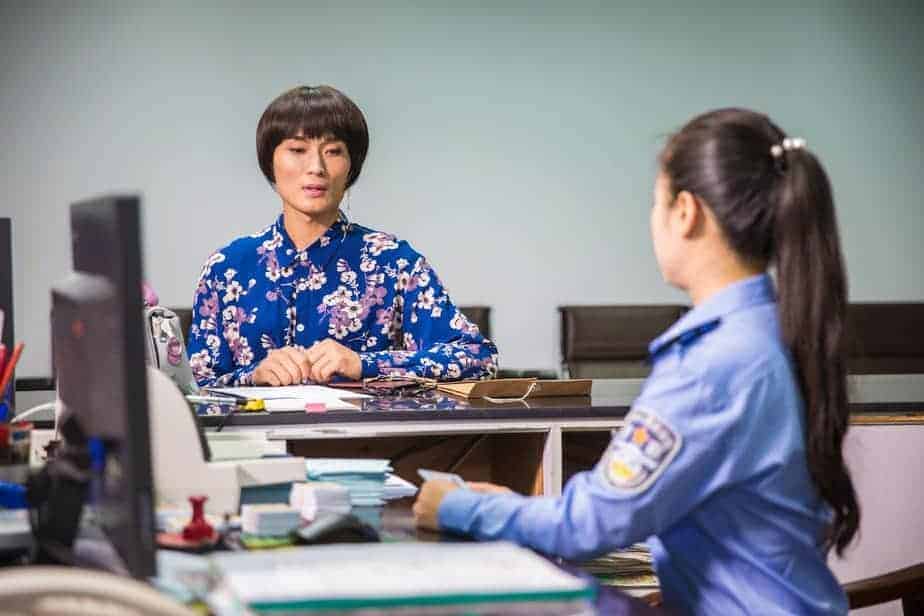“Blood and Bones” is based on the semi-autobiographical novel “Chi to Hone” by Zainichi Korean author Yan Sogiru. It was one of the most acclaimed Japanese films of 2004, nominated for 12 Japanese Academy Awards and winning four, including Best Actress, Best Director, Best Supporting Actor, and Best Screenplay, and was Japan's official submission for Best Foreign Language Film at the 78th Academy Awards.
The script revolves around the story of a family of Korean immigrants in Japan, starting in 1923, when they moved from Cheju Island to Osaka. The central figure of the story is Shunpei Kim, although his son, Masao, narrates the story. Shunpei, after the end of the war arises as a leading figure of the poor community he leaves in, as he builds a fishcake factory from scratch, and manages to bring great profit. However, Shunpei is not a kind benefactor, but a rather awful human being. In that fashion, he exploits his employees, working them to the bone and paying them nickels, and forces them to continue working for him through sheer intimidation.
His relationship with his family, though, is much worse. Apart from being a complete miser, who lets everyone around him leaving in poverty although he earns quite a lot of money, he is also abusive towards every member of his family, in a tendency that eventually leads him to physical fights with every one of them, including his wife and daughters. If that was not enough, he is also a shameless womanizer, who even has children with a number of women, with one of them, Takeshi, from an unknown woman, eventually appearing in the family's house with his wife, and starts living with them. In an apogee of both his awful tendencies, he uses the money he earned from the factory to build a house next to the one of his family, and starts leaving there with his mistress. When she becomes incapacitated, after a brain tumor, she hires another woman to take care of her, which, eventually, also becomes his mistress and gives him even more children. Lastly, he closes his business, and becomes a loan shark, hunting by himself the ones who owe him money.
Yoichi Sai focuses the film on Shunpei, with the other characters simply revolving around him in order to highlight, through their interactions, his persona. In that fashion, Takeshi Kitano is sublime in the central role, portraying an awful and very violent man, who does not seem to have any shred of kindness or benevolence on him. Sai, through Shunpeir and the impact he has to those around him, injects the film with a distinct and permeating dramatic essence, which focuses on both the extended family and the lives of the Korean immigrants, altough the latter in a definite secondary level. Shunpei's actions, however, do not let the audience feel sorry for him, even when his eventual demise comes with age, although his violent nature never actually ceases. The exact opposite applies to his women, and eventually his children, who, in probably most dramatic aspect of the film, are not able to avoid becoming like their parents.

Violence is also very common in the film, with a number of fights among Shunpei and his sons, and some very hard to watch scenes where he is raping, and in general mistreating the women in his life.
Apart from Kitano, the film features an ensemble cast, including Hirofumi Arai as Masao, Joe Odagiri as Takeshi and Susumu Terajima as Hee-bom, Shunpei's son-in-law. The one who stands apart among them is definitely Odagiri, who presents a cocky, but frustrated Takeshi in impressive fashion.
Technically, the film is quite impressive, particularly regarding the realism in the depiction of the neighborhood most of the film takes place in. In that fashion, Emiko Tsuyuki has done a sublime job in the set design, in both the interior and the exteriors. Takeshi Hamada's cinematography is also quite good, as he shoots Shunpei's violent actions through a distance that suits the film's aesthetics perfectly. Yoshiyuki Okuhara's editing keeps the film flowing in a nice rhythm.
“Blood and Bones” is a great film, despite its evident “obsession” with Kitano's character, which, due to his performance, functions quite impressively.

















great movie man!
very long, 3 hrs.
has abuse such as rape and domestic violence, but they don’t show this which is good.
some scenes will piss you off.
great movie